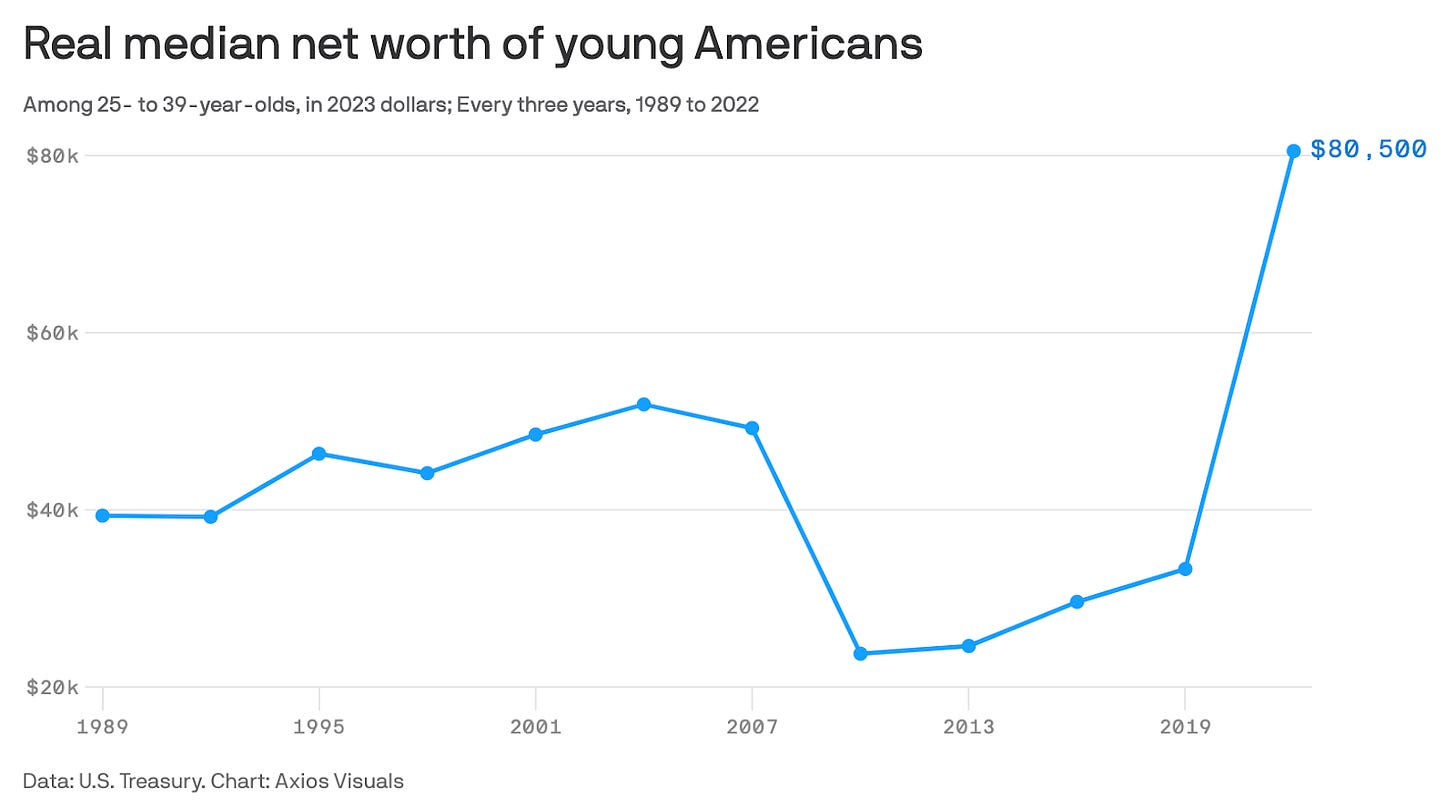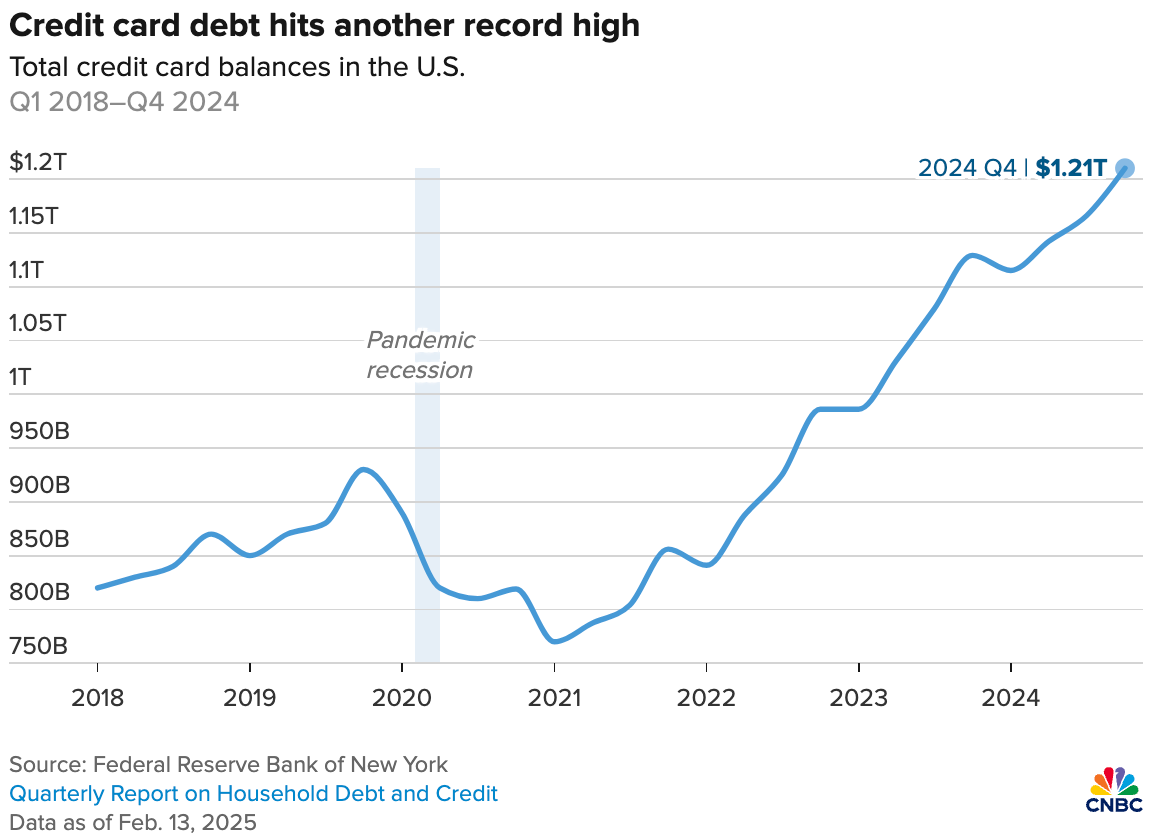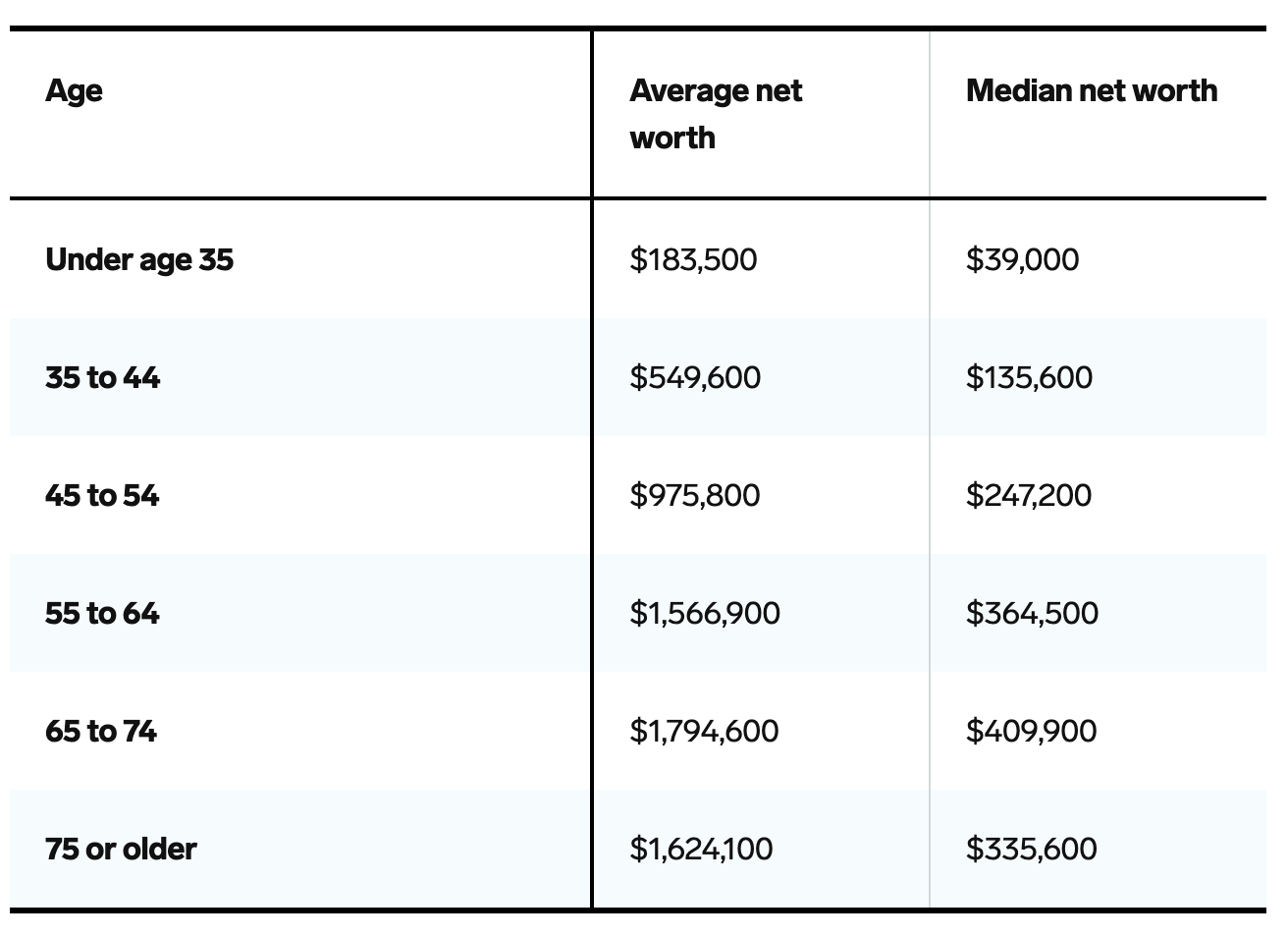From Keeping Up With The Joneses to Keeping Up With the Kardashians
Understanding how desire skews our understanding of wealth today
Reality TV and social media have fundamentally reshaped how people perceive wealth, surrounding us with noise and skewed perceptions of wealth. The phenomenon known as "money dysmorphia"—the disconnect between financial reality and perceived financial standing—has grown as parasocial relationships create unrealistic expectations. The result is that financial decisions are now being made for status, not sustainability, which is hitting younger generations the hardest.
The Illusion of Wealth: The Statistics Don’t Lie
Despite being richer than previous generations at their age, Americans under 40 years old feel increasingly fragile about their financial standing due to the loud luxury economy that dominates our media ecosystem. A Wells Fargo study found that over 40% of Millennials believe it’s important to have visible signs of wealth—cars, luxury homes, designer clothing—compared to only 21% of Gen Xers and even fewer Boomers. Meanwhile, a CreditKarma study found that nearly 44% of Gen Z and 46% of Millennials obsess over the idea of being rich, and approximately the same percentage experience money dysmorphia.
Here’s the twist: Many experiencing money dysmorphia are actually better off than average person. Approximately 7% of those who report feeling financially insecure have over $100,000 in savings, and 23% have over $30,000—far above the U.S. median savings of $5,300.
The Financial Impact of Imitating Wealth
The rise of money dysmorphia has led to reckless financial behavior, with over 40% of Millennials relying on credit cards or loans to maintain an image of wealth and fund their lifestyles. Meanwhile, the U.S. credit card debt has hit a record $1.21 trillion, and nearly 30% of consumers admit to buying things they can’t afford to impress others.
The social pressure to appear wealthy aligns with the phenomenon of mimetic desire, a concept from philosopher René Girard. He argues that we don’t just want things—we want what others want. Social media intensifies this by putting desire at our fingertips, making wealth seem attainable if only we emulate the right influencers, buy the right items, and adopt the right lifestyle.
The Power of Social Media in Shaping Wealth Perceptions
In the past, we were influenced primarily by family, friends, and magazines. Now, social media has created a world where anyone can be a model of success, fueling unrealistic expectations. The curated lives of influencers make wealth seem more accessible than ever, but in reality, it’s often an illusion. Girard's theory suggests that material desires aren’t about the objects themselves but about the transformation they promise. When people buy luxury cars, it’s not just about transportation—it’s about status, self-worth, and the illusion of belonging to a higher class.
When people chase richness versus prioritizing building wealth, their poor financial habits transfer wealth from those trying to appear rich to those who are actually wealthy. As Warren Buffett put it, "The stock market is a device for transferring money from the impatient to the patient." The same holds true for consumerism—those who spend to impress often end up financially unstable, while those who invest quietly build real wealth.
Morgan Housel captures this sentiment perfectly: "Wealth is what you don’t see. Spending money to show people how much money you have is the fastest way to have less money."
Redefining Rich vs. Wealthy: The New Financial Divide
Being "rich" means having a high income or flashy possessions. Being "wealthy" means having financial security and sustainable wealth. However, the definition of wealth varies by generation. A recent Empower survey found that Gen Z believes financial success means earning $587,797 annually with a net worth of $9.47 million, while Boomers define it as just $99,874 in income and $1.05 million in net worth. In fact, pay that exceeds half a million dollars a year would put someone in the top 1% of earners in 32 out of 50 states. In order to be in the top 20% of income, you would need to bring in an income of above $130,500 a year, while the top 1% earns above $819,324. The average American family has a net worth of $1.063 million, but surveys show most Americans believe being wealthy requires at least $2.5 million—a number that has steadily risen over the years.
Here's the typical American's net worth by age, according to Federal Reserve data:
These differing opinions emphasize the influence of our current media ecosystem in driving perceptions of wealth, with the generations that are much more socially-native have more money dysmorphia. The truth is, riches will never turn into wealth as long as perceptions of wealth are skewed. The social models that influence our financial desires are often designed to keep us feeling behind, encouraging spending rather than investing. True wealth comes from sustainable cash flow, smart investing, and the ability to resist the illusion of instant success.
The Path Forward: Shifting from Rich to Wealthy
To escape money dysmorphia and build lasting wealth, financial success must be redefined. Too many fall for what we call the "Numbers Myth" – the belief that prosperity can be reduced to numerical targets like retirement savings or net worth. We recently worked with a tech executive who, despite having a paid-off mansion and $5 million in retirement accounts, lived in constant anxiety about losing it all. Instead of chasing a number, focus on cash flow, long-term investments, and economic impact. Sustainable wealth is about security, freedom, and living on your own terms—not proving something to others.
People with modest means can feel abundantly wealthy because they've built sustainable value-creation systems, while multi-millionaires live in fear of losing everything. No matter where you are financially, the key is breaking free from external validation and redefining wealth on your own terms. The wealthiest people aren’t the ones with the most visible luxury; they’re the ones who have mastered the ability to resist short-term gratification for long-term prosperity.
Comment below any rules you live by to stay the course on your wealth accumulation journey.





